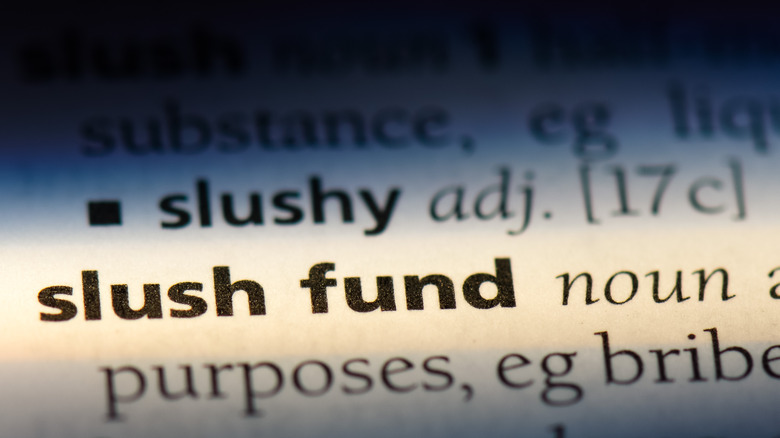Where Did The Phrase Slush Fund Come From?
A slush fund refers to an amount of money that has been set aside as backup, according to Investopedia. Sometimes, this money is off the books, and this has led to the connotation that a slush fund is money put on hold for illegal or immoral dealings. But where did this term originate? The answer lies all the way back on large sailing ships of the 18th century.
During this era, the "refuse grease and fat from cooking especially on shipboard" came to be known as "slush," according to Merriam Webster. This slush was actually a precious commodity because it could be used to make several important items, including candles. Therefore, the crew of a ship could sell this slush after a voyage and use the proceeds to buy things like instruments or books that the ship's owners wouldn't provide. The money earned from the sale of used cooking grease came to be called a slush fund.
From grease to greased palms
The first recorded use of the term slush fund was in 1839, according to the Online Etymology Dictionary. It came in William McNally's "Evils & Abuses in the Naval & Merchant Service, Exposed," in which he described the practice, according to The Phrase Finder. "The sailors in the navy are allowed salt beef. From this provision, when cooked nearly all the fat boils off; this is carefully skimmed and put into empty beef or pork barrels, and sold, and the money so received is called the slush fund," he wrote.
The term slush fund gained its association with bribery during the 19th century. At first, the phrase migrated from the world of sailing ships to simply refer to any amount of money collected by selling small items and used for a common purpose, according to Merriam Webster. For example, a police commissary reported selling items to add money to a slush fund in 1864. However, slush fund soon took on the meaning of funds collected and set aside for political bribes. An 1873 quote from The Weekly Caucasian railed against "itch-palmed, slush fund legislators," for example. The association between a slush fund and bribery may have originated in the idea of greasing palms, according to the Online Etymology Dictionary. The meaning continued to evolve, so that today we refer to any money set aside for dubious purposes as a slush fund, Merriam Webster explained.

